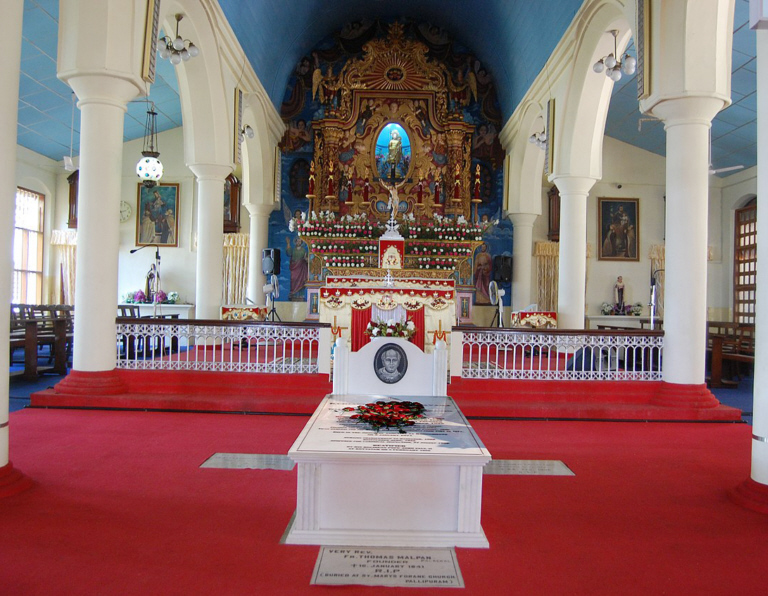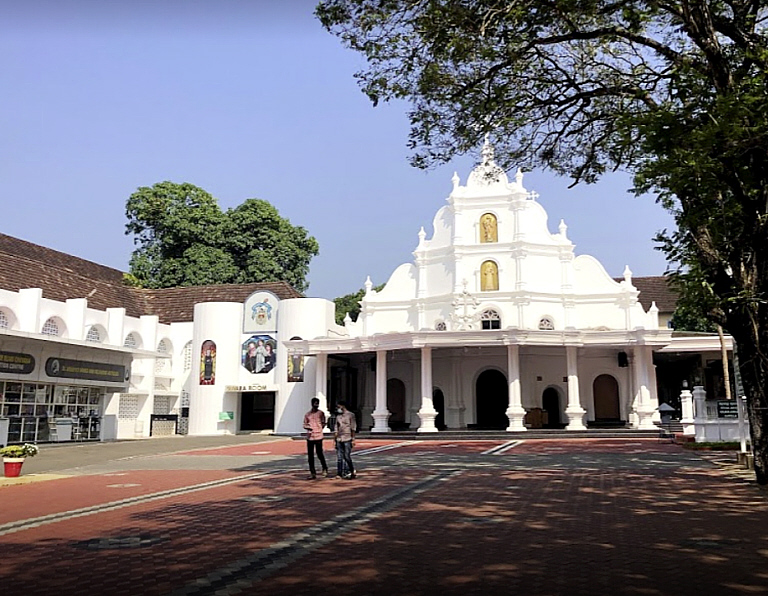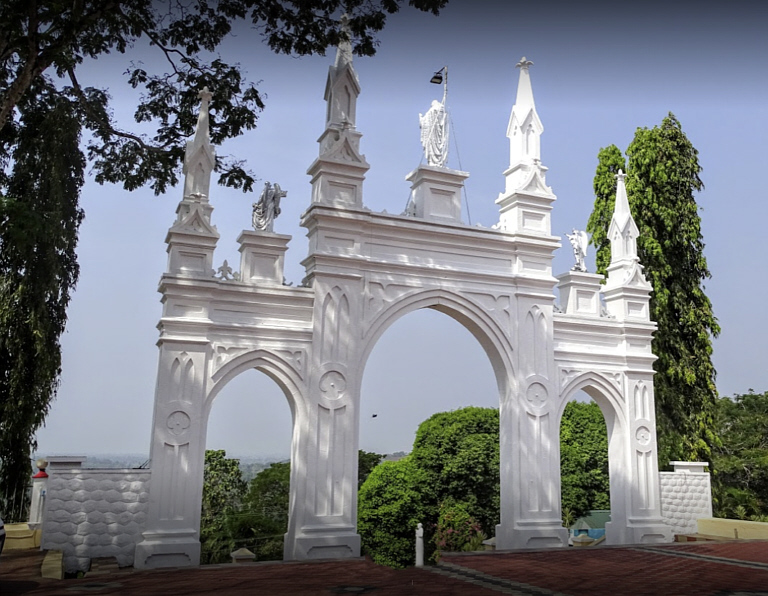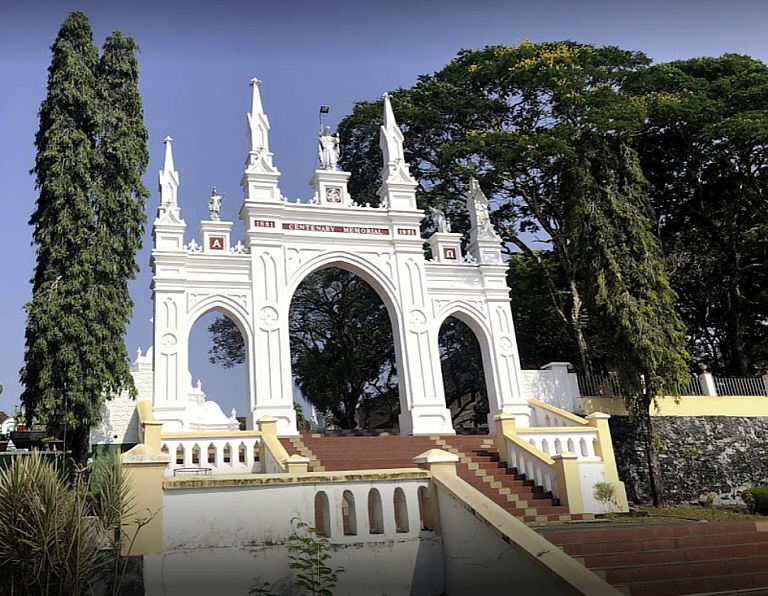Kuriakose (Cyriac) Elias Chavara was born in 1805, of pious and devout parents belonging to the Syro-Malabar Church, in Kainakary, Kerala, India. In baptism he was given the name Kuriakose (Cyriac). After his early schooling in the native village and priestly studies at Pallipuram under Fr. Thomas Palackal, a reputed Malpan of the Syro- Malabar Church, he was ordained priest in 1829 at Arthungal. In 1831 Fr. Thomas Palackal, Fr. Thomas Porukara and Fr. Kuriakose Elias Chavara together founded the first indigenous Religious Congregation for men, now known as the 'Carmelites of Mary Immaculate' (CMI) at Mannanam.





In 1855 Fr. Kuriakose together with other ten members made the religious profession, and took the name Kuriakose Elias of the Holy Family. Starting seven religious houses including the first one at Mannanam and the rest in different parts of Kerala, the new Congregation made great strides in the spiritual renovation of the Kerala Church. Seminaries for the education and formation of the clergy, introduction of annual retreats for priests and lay people, evangelization especially through catechumenates, printing and publishing house for the propagation of the Catholic Doctrine, house for the dying and destitute, movement for establishing schools attached to every church for general education and ongoing efforts for the unity of the Catholic and the reunion of the separated brethren were the most important among the various activities undertaken by Fr. Kuriakose Elias and his confreres. Fr. Chavara also introduced valuable improvements and reform in the syro- Malabar Liturgy. When a schism threatened the Church in Kerala in 1861 due to the intrusion of Thomas Roccos, a bishop from Chaldea, Fr. Chavara, the Vicar General of the Syro-Malabar Community, took a strong stand against it and through his effective leadership thwarted Roccos' attempts and saved the unity of the Church.
In 1866, with the co-operation of Fr. Leopold Beccaro OCD, he founded the Congregation of the Mother of Carmel (CMC) for women.
Fr. Chavara has also written a number of books in prose as well as in verse with unique spiritual vision. His counsel to the Christian families given in the form of ‘The Testament of a Loving Father' is universally applicable and relevant to this day. Essentially a man of prayer and intense charity, he lived in close communion with the Lord amidst his several religious and social activities. Owing to his deep spirituality that permeated all his actions, he was accepted and referred to as a man of God from his early years. In 1871 on 3 January, Fr. Kuriakose Elias Chavara, after a short but painful illness, passed away at Konammavu, preserving his baptismal innocence up to death. His mortal remains were later transferred from Konammavu to Mannanam in 1889 and have been interred in St. Joseph's Monastery Catholic Church, Mannanam.
The diocesan process for Fr. Chavara's beatification was inaugurated by the Archbishop of Chanaganassery on 3 January, 1958, at the request of Fr. Maurus CMI the then Prior General. The Congregation for the Causes of Saints, having scrutinized the writings of the ‘Servant of God’ and other relevant documents, formally introduced the cause on 15 March, 1980. On 07 April, 1984, Pope John Paul II solemnly recognized the heroic virtues of the ‘Servant of God’ and elevated him to the status of ‘The Venerable’. On 8 February, 1986 during his historic visit to Kottayam, Pope John Paul II elevated Kuriakose Elias Chavara to the ‘Honours of the Altar’ declaring him ‘Blessed’. On 23 November 2014, at Vatican, Pope Francis declared him a ‘Saint of the universal Church’ along with St. Euphrasia Eluvathingal, a member of the CMC Congregation founded by St. Chavara.